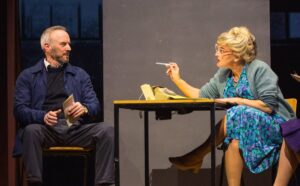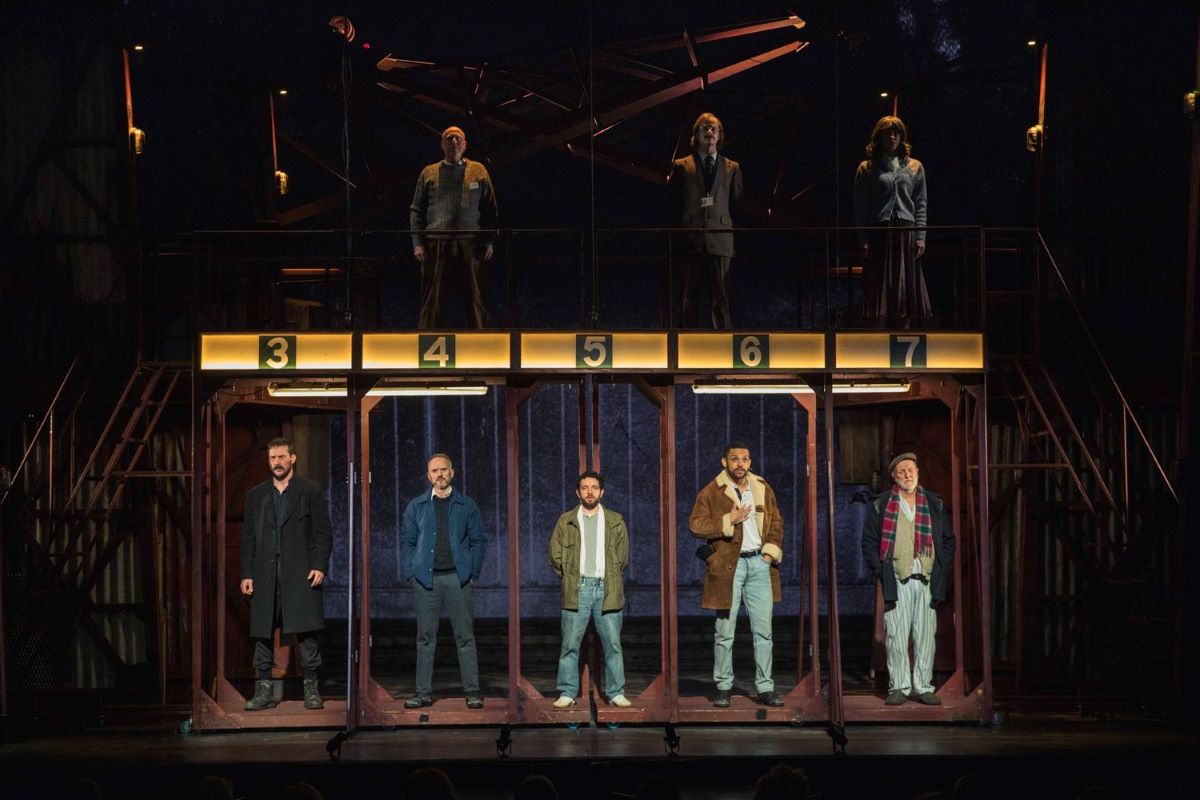Boys from the Blackstuff powerfully captures the mood and consequences of economic decline in 1980s Liverpool. The play is unapologetically period-specific, with every character, scene, and line of dialogue paying homage to the time and place. The narrative follows a group of working-class men as they sink deeper into the margins of British society. Their struggle to survive, both as individuals and as a community, is explored with nuance and authenticity.
The five ‘boys from the blackstuff‘ are introduced as callous, cynical, and, in their own way, likable. This blunt opening sets the tone for the play’s unflinchingly bitter perspective. Their grim, sarcastic dialogue, thick with Liverpudlian accents, encapsulates the bitterness of the setting. The language is culturally resonant and intentionally rough around the edges, capturing the disillusionment of five men stuck in hard times. There’s no attempt to make it easy to follow; instead, it feels raw, real, and deeply tied to the experience of the working-class Liverpudlian.
The men’s story is often juxtaposed with that of local government officials and the cold bureaucracy of the Department of Employment. The rigid, impersonal processes that dictate whether these men can remain on the dole only serve to highlight their increasing disillusionment. The cast excels in portraying this sense of futility, with body language that conveys how trapped and frustrated these men feel by a system that seems to work against them rather than for them.

These men are caught between the dole and the need to find illegal work on the side, a consequence of the collapse of Liverpool’s port industry. Each character is given a succinct but poignant storyline, as they each cope differently with the overwhelming helplessness of their situation and the looming threat of prosecution. The atmosphere is bleak but moving, as these characters find themselves between a rock and a hard place. Their struggles—rooted in the simple lack of work—resonate deeply. The play highlights the far-reaching effects of widespread unemployment: family breakdown, alcoholism, loss of purpose, identity, and dignity, as well as isolation and, ultimately, death. These moments of despair lead to some unforgettable drama, though there are a few exaggerated outbursts—particularly from the character of Yosser—that feel less touching or convincing.
While the play maintains a serious, reflective tone throughout, there are comedic moments that provide brief relief. The banter between characters is not merely for levity but serves to reveal their worldview: the forces they blame for their troubles, and their self-perception as outsiders and resisters. Their conversations often centre around Liverpool itself—the loss of culture, the dismantling of its working-class pride, and the community’s collective trauma. Have they failed to adapt, or was this economic downfall unavoidable? These questions hang over the production, subtly shaping the characters’ behaviour and pride.
Boys from the Blackstuff is a powerful tragedy, depicting how the destruction of livelihoods can also erode the human spirit. It’s an evocative and heartbreaking portrayal of how the collapse of industry reverberates far beyond the economy, affecting the very fabric of human lives.
‘Boys From The Blackstuff’
By James Graham
Directed by Kate Wasserberg
Set and Costume Designer: Amy Jane Cook
Cast includes Reiss Barber, Amber Blease, George Caple, Jurell Carter, Graham Elwell, Kyle Harrison-Pope, Jay Johnson, Elliott Kingsley, Sean Kingsley, Ged Mckenna, Victoria Oxley, Jamie Peacock, Sian Polhill-Thomas, Mark Womack
Running Time: 2hrs 24mins incl. interval
Until 21st June
Photo production: Andrew AB Photography

